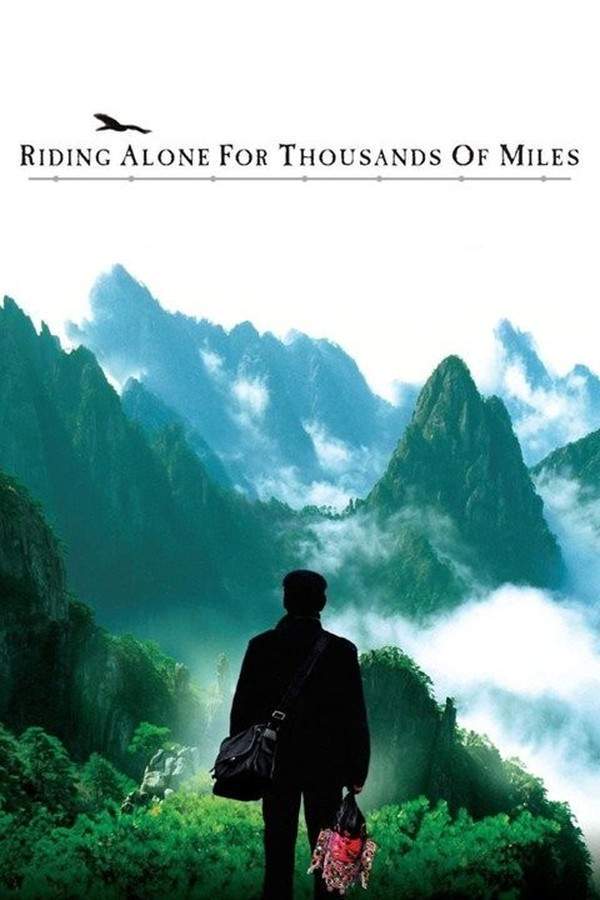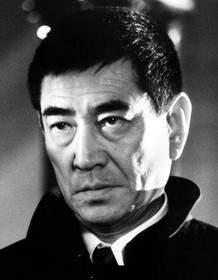Riding Alone for Thousands of Miles 2006

A Japanese fisherman embarks on a deeply moving journey when he discovers his estranged son is gravely ill in Tokyo. While reconnecting with his son, he unexpectedly finds himself helping a grieving Chinese opera star search for his own lost child. This heartfelt quest explores themes of family, regret, and the profound bonds that connect people across generations and cultural divides, ultimately offering a path towards healing and reconciliation.
Does Riding Alone for Thousands of Miles have end credit scenes?
No!
Riding Alone for Thousands of Miles does not have end credit scenes. You can leave when the credits roll.
Meet the Full Cast and Actors of Riding Alone for Thousands of Miles
Explore the complete cast of Riding Alone for Thousands of Miles, including both lead and supporting actors. Learn who plays each character, discover their past roles and achievements, and find out what makes this ensemble cast stand out in the world of film and television.
External Links and Streaming Options
Discover where to watch Riding Alone for Thousands of Miles online, including streaming platforms, rental options, and official sources. Compare reviews, ratings, and in-depth movie information across sites like TMDb, Wikipedia, Rotten Tomatoes or Metacritic.
Ratings and Reviews for Riding Alone for Thousands of Miles
See how Riding Alone for Thousands of Miles is rated across major platforms like IMDb, Metacritic, and TMDb. Compare audience scores and critic reviews to understand where Riding Alone for Thousands of Miles stands among top-rated movies in its genre.

73
Metascore
8.3
User Score


%
TOMATOMETER

0%
User Score

71
%
User Score
Take the Ultimate Riding Alone for Thousands of Miles Movie Quiz
Challenge your knowledge of Riding Alone for Thousands of Miles with this fun and interactive movie quiz. Test yourself on key plot points, iconic characters, hidden details, and memorable moments to see how well you really know the film.
Riding Alone for Thousands of Miles Quiz: Test your knowledge on the poignant journey of Takata Gouichi as he navigates family relationships and cultural experiences.
What is the main motivation for Gouichi's journey?
To find a new job
To mend his fractured relationship with his son
To visit a famous landmark
To meet a celebrity
To mend his fractured relationship with his son
Show hint
Full Plot Summary and Ending Explained for Riding Alone for Thousands of Miles
Read the complete plot summary of Riding Alone for Thousands of Miles, including all major events, twists, and the full ending explained in detail. Explore key characters, themes, hidden meanings, and everything you need to understand the story from beginning to end.
Takata Gouichi, portrayed by Ken Takakura, is an elderly man grappling with a strained relationship with his son Kenichi, played by Kiichi Nakai, since the passing of his beloved wife. As fate would have it, when Kenichi falls gravely ill, Gouichi embarks on a journey from his serene life in Akita to the bustling city of Tokyo, desperate to reconnect with his son. However, Kenichi’s response is heart-wrenchingly disheartening; he refuses to see his father.
In a turn of events, Kenichi’s wife Rie, depicted by Shinobu Terajima, hands Gouichi a video tape that offers a glimpse into his son’s life—a recording featuring an artist of Nuo opera, Li Jiamin, from Yunnan, China, who expresses his commitment to perform Riding Alone for Thousands of Miles. Motivated by a father’s love, Gouichi resolves to travel to China in Kenichi’s stead to document Li’s performance.
Upon arrival in the picturesque Village of Li, near Lijiang, Gouichi faces setbacks when he learns that Li is imprisoned due to an altercation stemming from a taunt directed at his illegitimate son. With the help of his translator Jiang Wen and local guide Qiu Lin, Gouichi wrestles with the idea of filming someone else, but remains steadfast in his mission to capture Li. After an arduous battle to gain access to the prison, Gouichi finally meets Li, who is overwhelmed with emotion, longing for his own son.
Gouichi’s journey takes a poignant turn as he decides to visit Stone Village to bring back Li’s young son, Yang Yang, who is just eight years old and dealing with the loss of his mother. During this quest, Rie contacts Gouichi with news that Kenichi has been touched by his efforts, suggesting that he should return home. Gouichi, however, is left questioning the authenticity of the message and perseveres in fulfilling his original mission.
In a twist of fate, their vehicle breaks down during their journey to the prison, prompting Yang Yang to flee out of fear of meeting a father he barely remembers. A heartfelt chase ensues as Gouichi pursues the frightened boy, leading them to become lost among the rugged limestone hills where they must spend a night in a cave. Initially wary, Yang Yang’s hostility softens as the night progresses, and they share an unexpected bond. Fortunately, their absence creates a stir, resulting in a rescue from locals and law enforcement the next morning. With compassion, Gouichi allows Yang Yang to return home, feeling that the boy’s comfort comes first.
Tragically, shortly after this emotional encounter, Rie conveys the devastating news of Kenichi’s passing, accompanied by a letter of forgiveness. Heartbroken yet resolute, Gouichi returns to the prison with poignant photographs of Yang Yang, inspiring a deeply moved Li to promise an extraordinary performance despite their shared grief.
As the performance begins, Li’s inquiry about why Gouichi isn’t recording the moment prompts an epiphany for Gouichi: the need to capture the event has dissipated with his son’s death. Yet, through Li’s entreaty, he decides to document the performance, culminating in a powerful piece that reflects the intertwining themes of journey, reconciliation, and the dualities of human experience—illustrating how success in foreign lands can sometimes overshadow the unresolved struggles at home.
Uncover the Details: Timeline, Characters, Themes, and Beyond!

Coming soon on iOS and Android
The Plot Explained Mobile App
From blockbusters to hidden gems — dive into movie stories anytime, anywhere. Save your favorites, discover plots faster, and never miss a twist again.
Sign up to be the first to know when we launch. Your email stays private — always.
Watch Trailers, Clips & Behind-the-Scenes for Riding Alone for Thousands of Miles
Watch official trailers, exclusive clips, cast interviews, and behind-the-scenes footage from Riding Alone for Thousands of Miles. Dive deeper into the making of the film, its standout moments, and key production insights.
Riding Alone for Thousands of Miles Other Names and Titles
Explore the various alternative titles, translations, and other names used for Riding Alone for Thousands of Miles across different regions and languages. Understand how the film is marketed and recognized worldwide.
Quick Links: Summary, Cast, Ratings, More

What's After the Movie?
Not sure whether to stay after the credits? Find out!
Explore Our Movie Platform
New Movie Releases (2026)
Famous Movie Actors
Top Film Production Studios
Movie Plot Summaries & Endings
Major Movie Awards & Winners
Best Concert Films & Music Documentaries
Movie Collections and Curated Lists
© 2026 What's After the Movie. All rights reserved.


















